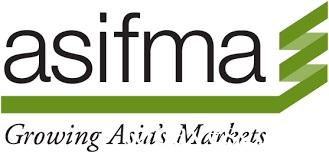Position Paper on International Sustainability Standards Board Standards
The Asia Securities Industry and Financial Markets Association (ASIFMA) releases a position paper on the International Sustainability Standards Board Standards (ISSB Standards), aimed at helping financial market participants in Asia understand the requirements and application details of ISSB standards.
The Asian Securities Industry and Financial Markets Association is composed of banks, asset management companies, accounting firms, law firms, and market infrastructure service providers in Asia, aiming to promote the development of Asian capital markets. As various jurisdictions in Asia incorporate sustainable information disclosure into their regulatory framework, the market’s attention to international sustainability reporting standards is gradually increasing.
Related Post: Principles for Responsible Investment Releases a Statement Calling on Jurisdictions to Adopt ISSB Standards
Application of International Sustainability Standards Board Standards
The International Sustainability Standards Board Standards will serve as a global benchmark to enhance the consistency, comparability, and practicality of sustainable information disclosure. Based on this standard, entities can accurately and timely disclose sustainable information, which can help market participants assess sustainable risks and opportunities. Some Asian entities also need to disclose information based on the European Sustainability Reporting Standards (ESRS) in order to comply with local regulatory requirements.
The Asian Securities Industry and Financial Markets Association recommends that all jurisdictions in Asia adopt both IFRS S1 and IFRS S2 simultaneously. The general principles in IFRS S1 are the basis for climate information disclosure in IFRS S2 and future sustainability reporting standards. Currently, Hong Kong and Singapore have planned to adopt sustainable development reporting standards by 2025. The Asian Securities Industry and Financial Markets Association supports the phased disclosure approach adopted by two jurisdictions to reduce the reporting burden on entities. Meanwhile, each jurisdiction may add new disclosure requirements based on international standards, but should not reduce existing disclosure requirements.
The Asian Securities Industry and Financial Markets Association believes that sustainable information can have a material financial impact on entities, so entities can consider including sustainable information disclosure reports in their annual reports. Although the international sustainability reporting standards do not require entities to disclose data from the previous year for comparison in the first year, the association still recommends entities to disclose comparable information to facilitate investors.
Application of ISSB Climate Disclosure Standards
The Asian Securities Industry and Financial Markets Association recommends that entities be required to disclose Scope 1 and Scope 2 data and clarify the scope of disclosure. For Scope 3 data, the ISSB Standards allows entities to freely decide which material carbon emission information to disclose. The association believes that regulators can develop policies to help entities understand their value chain and improve the quality of information disclosure. For industry related climate indicators, the association recommends that entities refer to the standards developed by the Sustainability Accounting Standards Board and provide corresponding climate related information.
Climate based scenario analysis can help investors understand the climate risks faced by entities in different scenarios. The association recommends that entities disclose details such as assumptions and calculation processes of scenario analysis, so that investors can estimate physical and transition risks. With the development of climate information disclosure, regulators should consider incorporating some practical climate indicators, such as carbon emission intensity.
The Asian Securities Industry and Financial Markets Association believes that regulators should be careful about the degree of application of the “comply or explain” principle. When jurisdictions adopt this principle, entities should be encouraged to disclose information where feasible. At the same time, premature mandatory disclosure may impose a significant burden on entities and reduce the quality of information disclosure. Therefore, as information disclosure standards and methods gradually mature, voluntary disclosure can be gradually transformed into mandatory disclosure.
Reference:
Adoption of the ISSB Standards in Asia: ASIFMA Asset Management Group Position Paper








